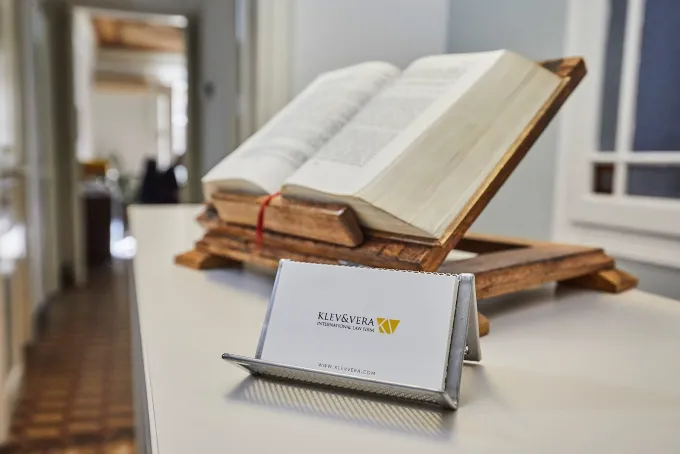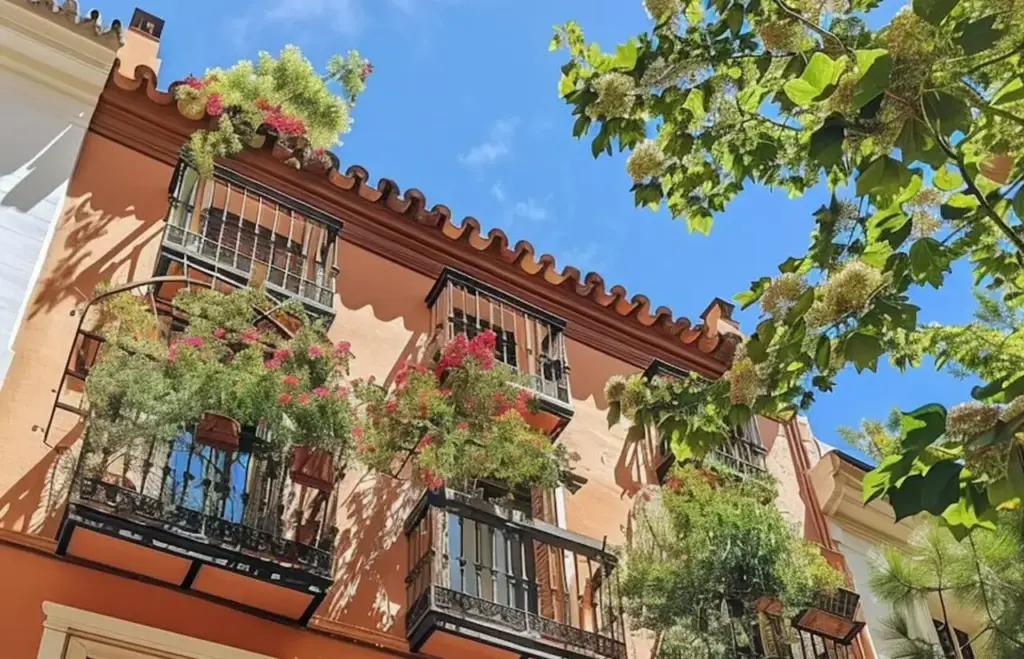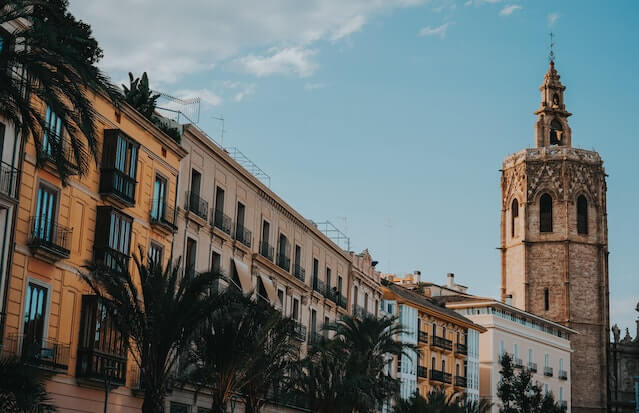REAL ESTATE:
Buy or sell property in Spain.
Make sure your interests are well-protected by relying on the help of real estate experts. Simply enjoy your new property and forget about the legal formalities. Let us assist you in your property matters in Spain.

Infographic: Nationalities that bought more residential properties in Spain 1Q 2023.
REAL ESTATE:
Buy or sell property in Spain.
Make sure your interests are well protected by relying on the help of real estate experts. Simply enjoy your new property and stop worrying about the legalities. Let us assist you in your property matters in Spain.

Infographic: Nationalities that bought more residential properties in Spain 1Q 2023.
How will Klev&Vera assist you in real estate matters?
Get in touch
Send us the required documentation
Let us manage the process from start to finish
Klev&Vera, your Real Estate English speaking lawyers in Spain
Our experience in dealing with both national and international clients allows us to understand your needs and expectations better in order to protect your interests.
Our multilingual team of experts will walk you through the whole process, making sure your property purchase or sale in Spain and your investment is securely handled and all legal documents are properly filed under Spanish law, from negotiating the purchase conditions until you are holding the keys in your hand.
Our law firm is made up of English-speaking lawyers who have years of experience in premium assistance helping foreigners in buying, selling, and renting their property all over Spain.
A premium service for a stress-free process.

An independent legal service for buying or selling a property.
buy a property in spain
buy a property in spain
sell a property in spain
sell a property in spain
rent a property in spain
rent a property in spain

Buy a Property in Spain
Buying property in Spain is not as straightforward as one would expect, and that is why we always recommend you hire a good real estate lawyer that speaks your language, especially one with years of experience successfully assisting foreigners in real estate transactions in Spain.
We offer a comprehensive property conveyance service to buyers which includes the following:
- Negotiation and Contracts:
- Review and modify the purchase contracts (reserva y arras).
- Due Diligence of the Property:
- Verification that the seller has the right to sell.
- Registry search to ensure the property is free of any burdens and encumbrances.
- Verify that the property complies with all local zoning laws.
- Ensure outstanding taxes and debts on the property are paid before transfer.
- Check that agreed items and appliances are included in the sale.
- Assisting with the Notary Signature:
- Assistance when signing the deeds of the property (escritura).
- Advice on related expenses and payment of taxes:
- Payment of the Property Transfer Taxes.
- Payment of related fees and expenses.
- Registration of new title in the Property Registry.
- Identify and solve possible incidents when buying a property in Spain:
- Unregistered property.
- Preferential rights of acquisition by third parties.
- Various realtors dealing with the same property.
- Mortgages or old burdens not cancelled in the Registry.
- Property built or repaired without licenses.
- Rural houses built on land where building is not allowed.
- Late delivery or hidden defects.
Sell a Property in Spain
When you sell your real estate in Spain you already have a very good knowledge of the conveyancing process, however, it is important to ensure you haven’t missed any liabilities and are able to receive the due funds safely.
We offer a comprehensive property conveyance service to the sellers which includes the following:
- Negotiation and Contracts:
- Review and modify the purchase contracts (reserva y arras).
- Due Diligence:
- Advise on the necessary documents you need to provide to the buyer.
- Help you in obtaining those documents.
- Make sure the buyer has provided you with all the necessary documents from his/her side to ensure a secure transaction.
- Assisting with the Notary Signature:
- Assistance when signing the deeds of the property (escritura).
- Advice on related expenses and payment of taxes:
- Payment of the Capital Gains and other relevant Taxes for the seller.
- Formalities related to a mortgage cancellation.
- Ensure your name is removed from the Property Registry.
Rent a property in Spain
Whether you are looking for a place for you to live or run a business in Spain, or rent your own property out, it should be an easy task. However, you can encounter several difficulties, from high demand in the sector to being perplexed by the complex language of Spanish lease contracts. When you rent your own property out, you may have concerns on how best to prevent cases of lack of payments or damages to your real estate.
To help you navigate through the Spanish legal terms in your lease contract we always recommend you to hire a good real estate lawyer that speaks your language.
We offer a comprehensive service on lease contracts, which includes the following:
- Make sure you understand the content of your lease, the costs and obligations.
- Negotiate best possible terms.
- Draft/modify the contract in the way that protects your interests.
- Advise and assist in the process of reporting any problems during your lease.
- Assist you when you wish to terminate your lease, making sure you can recover your security deposit.
What you need to know about buying a property in Spain
Buying a property in Spain can be daunting. As a foreigner you may be used to the way of doing business in your home country, but Spain may have steps or ways you are not used to. Relying on the assistance of your English-speaking lawyer can prevent many inconveniences and extra costs in the future.
What is the process to buy a property in Spain?
The legal purchase process usually starts when you make a purchase offer. Normally you do it through a reservation contract, it is always better to remember to include clauses that allow you to recover the initial payment should something go wrong.
Then the seller provides you with the legal documents of the property to verify its conditions and characteristics. If you are satisfied with those, you proceed to sign the down-payment contract (arras), and finally formalise the purchase in front of a notary public.
What documents do I need to buy a property in Spain?
When you go to sign the deed in front of a notary public you will need to bring your original valid passport and your NIE – Foreigner’s ID in Spain. You can read more about getting a NIE in our post here.
The notary will ask for your civil status (if you are single or married) and if you are married, you may need permission from your spouse.
Do I need a Spanish bank account to buy a property in Spain?
Yes. When you pay the purchase price in front of a notary public you will need to either bring a guaranteed cheque from a Spanish bank, or arrange an immediate wire-transfer through the Bank of Spain system. Any other way of payment will raise serious concerns and trigger fraud-prevention mechanisms.
What are the costs involved when buying a property?
The additional costs for buyers related to a property purchase include various taxes and fees, and should always be made clear at the beginning of the purchase:
- Property Transfer Tax – depending on your case, Property Transfer Tax or Value-Added Tax (ITP o IVA), usually 10%. If your property is new, you will also need to pay a Stamp Duty (IAJD) depending on the rates set by the corresponding regional Tax Office.
- Realtor fees or commissions – common practice is between 1-3 percent, but now more and more agencies are choosing not to charge commissions on the buyer.
- Lawyer fee to represent you in the purchase – it varies depending on the firm.
- Appraisal fee – if you wish to know the confirmed market value.
- Notary fees and Property Registry fees – vary based on the total property value, but usually no more than the 1% of the property value.
- Bank fees – to issue guaranteed cheques or bank transfers of the purchase price.
Can I buy it with a mortgage?
Yes, you can. You will need to negotiate and agree the most suitable conditions with your bank in advance. We can advise you on the best conditions of getting a mortgage in Spain as a non-resident.
Can I buy the property through a company?
Yes, you can, both Spanish and foreign companies. We can assist you in setting up a most appropriate corporate ownership structure.
What you need to know about selling a property in Spain
Selling a property in Spain can be daunting, as a foreigner you may be used to the way of doing business in your home country, but Spain may have steps or ways you are not used to. Relying on the assistance of your English-speaking lawyer can prevent many inconveniences and extra costs in the future.
Can I sell my Spanish property through a PoA?
Yes, if you are outside Spain at the moment of signing the notary deeds, you can grant a Power of Attorney to another person to represent you. We can assist you in drafting it, or even signing on your behalf, if you need.
What documents do I need to sell a property in Spain?
When you go to sign the sale deed in front of a notary public you will need to bring your original valid passport and your NIE (Foreigner ID) in Spain. The notary will ask for your civil status (if you are single or married) and if you are married, you may need permission from your spouse.
You will also need to bring:
- The original notary purchase deed (escritura).
- Certificate of Fitness.
- Certificate of Energy Efficiency.
- Certificate of debts or no-debts of the Community of Owners, if you have one.
- Proof of payment of the IBI tax.
- Last utility bills.
- The keys.
Do I need a Spanish bank account to sell a property in Spain?
Yes. The buyer pays you the purchase price in front of a notary public either by a guaranteed cheque from a Spanish bank, or by an immediate wire-transfer through the Bank of Spain system. After you receive the funds in your Spanish bank account, you can arrange its transfer to your home country. We can assist you with closing down your Spanish bank account if you no longer need it.
What are the costs involved when selling a property?
While most of the costs related to a property purchase in Spain are always paid by the buyer, there are also taxes and extra costs that you will need to pay as a seller:
- Income Tax – depending on whether you are a tax resident in Spain or abroad.
- Municipal Land-Increased Value Tax (plusvalia municipal).
- Lawyer fee to represent you in the sale – it varies depending on the firm.
- Bank fees – to issue guaranteed cheques or bank transfers of the purchase price.
- If you have a mortgage on the property you will also need to pay Notary fees and Property Registry fees to cancel it in the Property Registry.
What you need to know about renting a property in Spain
When you rent a property in Spain, you need to sign a contract that sets up your rights and obligations. Relying on the assistance of your English-speaking lawyer can prevent many inconveniences and extra costs in the future.
What type of leases exist in Spain?
You can typically encounter 3 types of rental contract:
- Residential Lease (arrendamiento de vivienda) – for long-term rental of your Spanish home.
- Temporary Lease (arrendamiento de temporada) – for short-term rentals of a place to stay in Spain – usually between 1 to 12 months.
- Commercial Lease (arrendamiento del local comercial)- for long-term rentals of a place to run your business.
What rights do I have as a tenant?
- You can negotiate the rent to pay, and the conditions of the early termination of lease.
- You can extend your residential lease to up to 5 years, or 7 years if the property owner is a company.
- You have the rights of preferential acquisition in case of sale of the property. It is however typical that lease contracts include a clause where you renounce this right.
- Compensation in case the owner decides to carry out important works in the property that prevent the usual use.
- To claim that the owner maintain the property in good conditions for renting.
- Recover your security deposit when the lease is terminated, provided you are up to date with all the payments, and haven’t caused any damage to the property.
- You have the exclusive right to use the property, and the owner cannot enter without your permission. You need to read carefully how this right is regulated in your contract to understand the conditions and limits.
Can my landlord increase the rent?
Yes, Spanish law allows property owners to increase the rent according to the publicly elaborated Index of Consumer Prices (IPC). Your lease must specify the details. Some limits apply according to the conditions established by the Spanish government to soften the effects of the pandemic and high inflation rates in recent years.
Can I terminate the lease if the tenant stopped paying?
Yes, you can terminate the lease, but if the tenant doesn’t leave the property voluntarily you need to initiate the applicable legal procedure according to your rental contract (judicial or arbitration). Generally, the tenant will be liable for the costs of it, including your legal assistance. We can assist you in the process if needed.
What our clients are saying
Related news

Renting a property in Spain: Everything You Need to Know

Golden Visa in Spain: Everything you need to know

